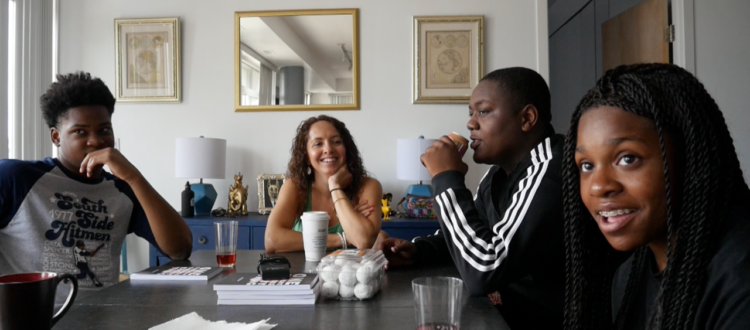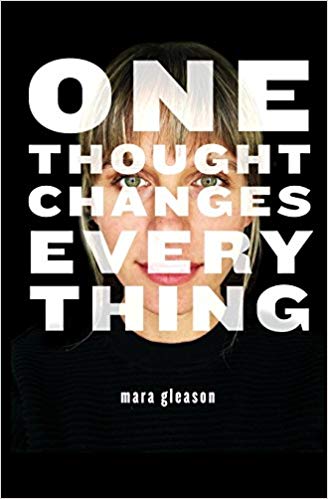Chicago: Understanding the Source of Violence
This article was written by the co-founder of One Solution, Mara Gleason
While sitting around a table with three of our teen partners from Rebels for Peace, we asked “what is the biggest problem in your community?” The answer from these three teens from the South Side of Chicago may surprise you.
It’s worth pausing to add a little background on the three youth: one young man has a father and older brother in jail for gang activity, the young woman had a brother who was shot and killed last year, and the third young man doesn’t say much about his family situation other than that he lives with his aunt and knows to just stay inside when the “streets get hot,” meaning when the shooting starts. So you may be surprised that their answer to the question was not “lack of jobs,” “no father figures around,” or “failing school systems.” It wasn’t even “guns,” “racism” or “the police,” which you might expect to hear from teenagers in their environment. Their answer to the biggest problem facing their community was plain and simple: “emotional reactivity.” They explained that people in their community have started overreacting to everything. Every last thing is a reason to get upset. You looked at my girl. You walked on my block. You said something bad about my homie. Everything is a trigger. Combine that emotional reactivity with the unbelievably easy access to guns and you’ve got a homicide epidemic to the tune of more than 4,000 shooting victims and nearly 800 shooting deaths in 2016 alone. These kids, who live in the neighborhoods where that violence takes place, pinned it down to one major issue: emotional reactivity. Furthermore, they were unanimous in their diagnosis of the cause.
The biggest problem facing their community was plain and simple: “emotional reactivity”
I know it might not seem like it, but that is incredibly good news, and that is precisely why we feel that we have a unique solution to offer Chicago residents. As Chicago Police Dept. Superintendent Eddie Johnson said when we met with him to discuss the violence, “there is no amount of policing that is going to cure this problem. We could put a cop on every block. But until something changes in these folks’ mindsets, we’re going to see the same issues.” And Johnson admits that goes for both sides of the equation, violent offenders and police officers alike. Emotional reactivity is a problem with the police department, just like it’s a problem on the streets (and just like it’s a problem in all parts of the world). The reason this is incredibly good news is because human beings can learn about the mind such that they become less reactive, more resilient, and then more peaceful individuals. What’s even better is that everyone naturally wants to feel more resilient and peaceful when given the opportunity (many just don’t know how to). You don’t have to sell people on it, it’s an obvious preference once people realize how to access it in themselves. That is why we are so hopeful about working in Chicago. We are a global network of educators that share a simple set of principles about the mind that help people, regardless of environment or background, to access more resilience and become less victimized by what’s going on around them and by the reactivity to that in their mind. It’s not to say that there aren’t immense challenges facing many of the individuals living in the south side of Chicago and many challenges facing police officers, but that’s all the more reason to focus on building resilience inside of people.
We are a global network of educators that share a simple set of principles about the mind that help people, regardless of environment or background, to access more resilience and become less victimized by what’s going on around them
Until now, cities like Chicago and many others around the world that suffer from seemingly incurable violence have tried to address the behaviors by treating the symptoms. But like Superintendent Johnson alluded to, that never seems to really solve it. Much like an imbalance in the body, you can treat the symptoms, but until you address the underlying cause of it, it just keeps rearing its ugly head in a variety of different ways. We have seen in cities like Oakland, CA, Miami, FL and the Mississippi Delta that educating people about their own freedom of mind and resilience is the key to curing violence, drugs, and the hopelessness that stems from them. When human beings become healthy from the inside-out, they naturally want to help improve their external environment. The Rebels for Peace are proof that is beginning to happen here in Chicago….to be continued.


